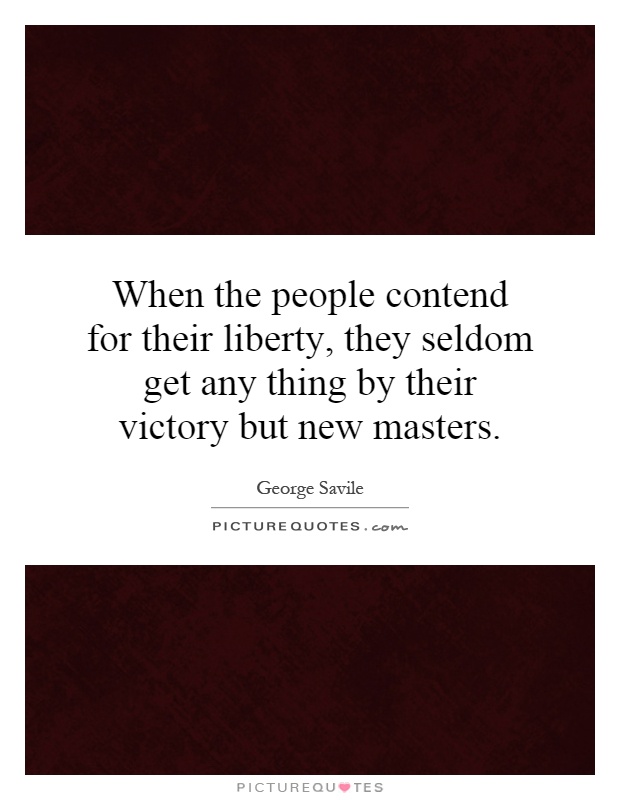When the people contend for their liberty, they seldom get any thing by their victory but new masters

When the people contend for their liberty, they seldom get any thing by their victory but new masters
George Savile, the 1st Marquess of Halifax, was a prominent English statesman and writer known for his political essays and speeches during the late 17th century. One of his most famous quotes, "When the people contend for their liberty, they seldom get anything by their victory but new masters," reflects his skepticism towards popular uprisings and revolutions as a means of achieving true freedom.Savile's statement suggests that revolutions and rebellions, often fueled by the desire for liberty and independence, can ultimately lead to the establishment of new oppressive rulers or systems of government. He believed that the cycle of overthrowing one tyrant only to replace them with another was a common occurrence throughout history. Savile's views were shaped by his experiences during a tumultuous period in English history, marked by civil wars, political upheaval, and the Glorious Revolution of 1688.
During this time, Savile witnessed firsthand the consequences of popular uprisings and revolutions, which often resulted in the consolidation of power by a new ruling elite. He understood that the pursuit of liberty and justice could be easily co-opted by ambitious individuals seeking to seize power for themselves. Savile's skepticism towards popular movements was rooted in his belief that true freedom could only be achieved through a stable and balanced system of government, rather than through violent upheaval and chaos.
Savile's cautionary words serve as a reminder of the complexities and challenges inherent in the struggle for liberty. While the desire for freedom is a noble and worthy cause, it is important to consider the potential consequences of revolutionary actions. History has shown that revolutions can sometimes lead to unintended consequences, including the rise of new authoritarian regimes or the erosion of democratic principles.












 Friendship Quotes
Friendship Quotes Love Quotes
Love Quotes Life Quotes
Life Quotes Funny Quotes
Funny Quotes Motivational Quotes
Motivational Quotes Inspirational Quotes
Inspirational Quotes